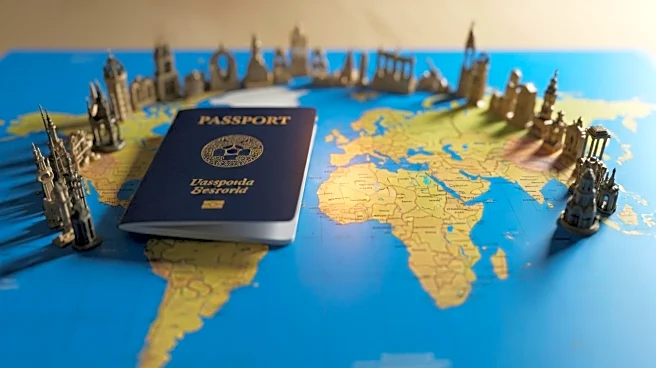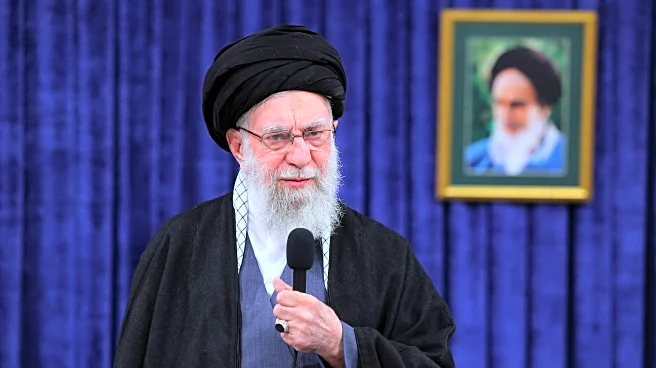What's Happening?
International travel to the United States has seen a significant downturn, with fewer foreign visitors arriving this summer. Experts attribute this trend to President Trump's return to the White House, citing his tariffs, immigration policies, and rhetoric as factors alienating travelers. The World Travel & Tourism Council projected a decline in foreign visitor spending in the U.S., marking it as the only country among 184 studied to experience such a drop. The sentiment drag has been severe, with a predicted 8.2% decrease in international arrivals for 2025. The decline is particularly noticeable among Canadian visitors, with a 37% drop in car returns and a 26% decrease in plane returns from the U.S. in July.
Why It's Important?
The decline in international travel to the U.S. has significant implications for the tourism industry, which relies heavily on foreign visitors. The reduction in travel impacts local economies, particularly in border towns and major tourist destinations like Las Vegas and Los Angeles. The decrease in foreign visitor spending could lead to economic challenges for businesses dependent on tourism. Additionally, the political climate and policies under President Trump may further deter international travelers, affecting the U.S.'s global appeal and economic growth in the tourism sector.
What's Next?
Tourism organizations are likely to adjust their marketing strategies to counter negative perceptions and attract visitors from other regions. Efforts may focus on promoting the U.S. as a welcoming destination, emphasizing cultural and personal experiences. The tourism industry may also advocate for policy changes to improve international relations and encourage travel. As the political landscape evolves, stakeholders will monitor the impact of President Trump's policies on travel and tourism, seeking opportunities to mitigate negative effects and enhance the U.S.'s attractiveness as a travel destination.
Beyond the Headlines
The decline in international travel raises broader questions about the U.S.'s global image and its ability to attract foreign visitors. The political rhetoric and policies under President Trump may have long-term implications for the country's reputation and its role in international tourism. Stakeholders must consider the ethical and cultural dimensions of travel policies and work towards fostering a more inclusive and welcoming environment for international visitors.










